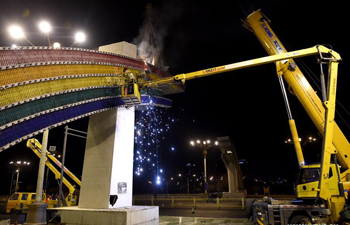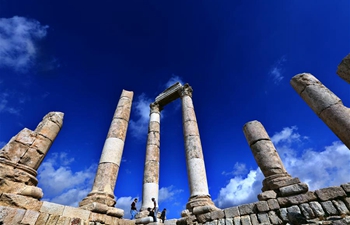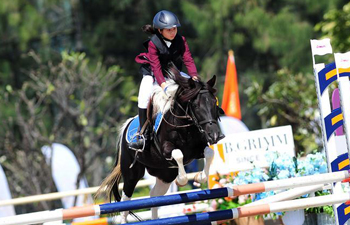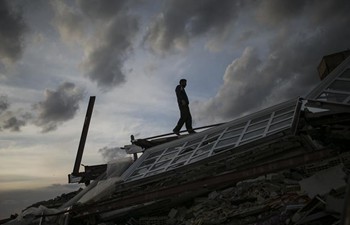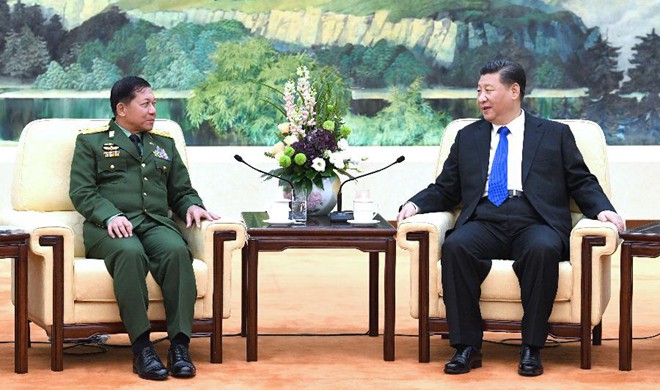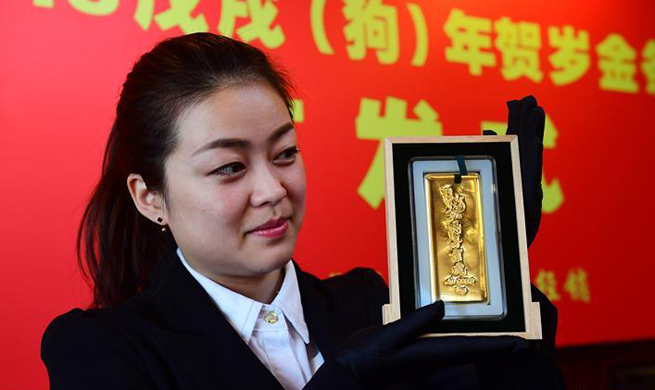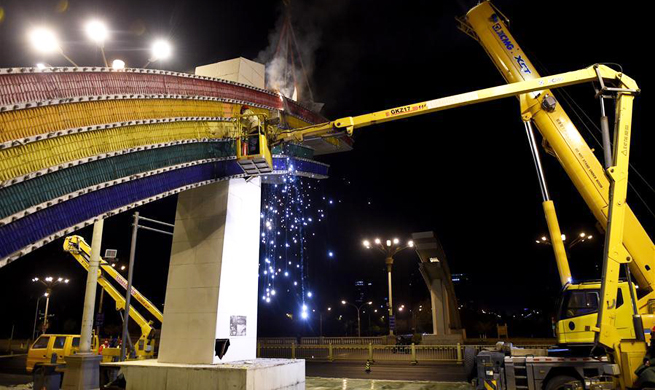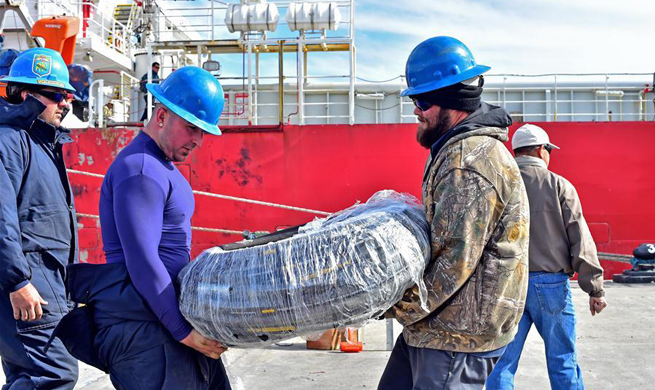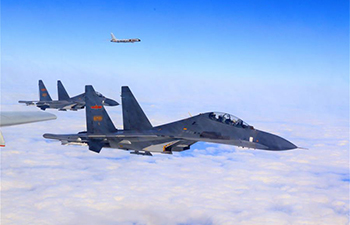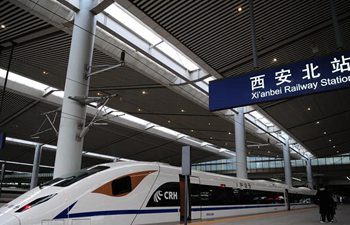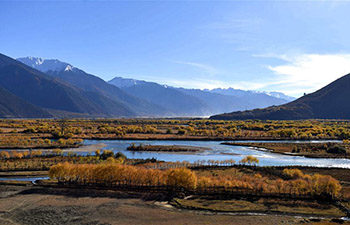HAVANA, Nov. 25 (Xinhua) -- Cuba marks on Saturday the first anniversary of the death of former president and revolutionary leader Fidel Castro at the age of 90.
On Nov. 25, 2016, Cuban president and Fidel's brother, Raul Castro, announced in a TV broadcast to the world the revolutionary leader passed away the same day at 10:29 p.m. local time.
Learning the shocking news, Cubans wept, placed pictures of Castro in their balconies and homes and paid tribute to their leader for half a century.
Cuba declared nine days of national mourning and a massive state funeral took place on Nov. 29 where over one million people gathered at Havana's Revolution Square and international delegations from 55 countries participated, including several presidents and heads of state.
Afterwards, millions of Cubans crowded along the roads to bid farewell to Castro on his journey from Havana to the eastern city of Santiago de Cuba, where his ashes would rest.
Fidel Castro was born on Aug. 13, 1926 in the town of Biran, northeastern Cuba, to a wealthy family.
He demonstrated his athletic abilities, intellectual wisdom and uncompromising defense for social justice from a young age.
He attended private schools in the eastern city of Santiago de Cuba and the capital, and in 1945 entered the University of Havana to study law.
In this period, Castro was actively linked to student protests and acquired political awareness that led him to develop anti-imperialist revolutionary ideas closely related to Marxist values.
After the coup perpetrated in 1952 by dictator Fulgencio Batista, Castro organized and trained a hundred young revolutionaries and on July 26, 1953, he led an attack on the Moncada military fortress in Santiago de Cuba.
The action was a military failure and Fidel was sentenced to 15 years in prison, of which he only served 22 months because of a presidential pardon in May 1955. He returned to freedom as a result of strong pressure and popular campaigns.
His self-defense plea, better known as "History Will Absolve Me," became a programmatic document and projected him as a leading figure of a revolutionary movement.
After his release from prison, he founded the July 26 Movement and later fled to Mexico to organize an armed insurrection.
There he was joined by his brother Raul Castro and other prominent revolutionaries as Ernesto "Che" Guevara and Camilo Cienfuegos, who trained for a year until December of 1956, when he led the Granma yacht expedition with 82 men aboard.
Castro sailed to the shores of eastern Cuba where he and other revolutionaries were attacked by Batista's soldiers and only a few managed to regroup and head on to the Sierra Maestra mountains to continue the struggle, thus giving birth to the Rebel Army.
The rebels began to grow stronger and gained popularity while the war took place in that region of the Caribbean nation.
In 1958, the revolutionary movement decided to speed up the war opening new guerrilla fronts in other mountainous areas of eastern and central Cuba.
After defeating Batista's elite troops in central Cuba, on January 1, 1959, the dictator fled the country and the revolution led by Fidel Castro triumphed.
A month later he took over as prime minister and became the political figure of the emerging revolution that had a strong popular support particularly from the poor.
He undertook a series of changes like land reform, a nation-wide literacy campaign, the expropriation of American companies, nationalization of sugar factories, industries, banks and oil refineries, among others.
Fidel also directed and participated in all actions undertaken to defend the newly won sovereignty and proclaimed Cuba a socialist country, particularly after relations were broken with the United States.
Since the victory of the Revolution and throughout the past five decades, Fidel has promoted and led the struggle for the consolidation of the revolutionary process in the Caribbean nation and its progress toward building a socialist society with its own characteristics.
As First Secretary of the Communist Party of Cuba (PCC) and president of the nation, he worked to provide free education and health to the people and develop sports, culture and science.
On July 31, 2006, after attending a summit of the Southern Common Market (Mercosur), Fidel Castro had to undergo a complex surgery.
Subsequently, in February 2008, the historic leader of the Cuban Revolution presented his final resignation due to health problems and began a new stage in his political life, marked by the publication of his famous articles.
With his political wisdom and moral authority after 47 years in power, Castro's legacy will continue to influence important and strategic decisions of the country which is undergoing economic transformations and reforms to upgrade its economic model.





